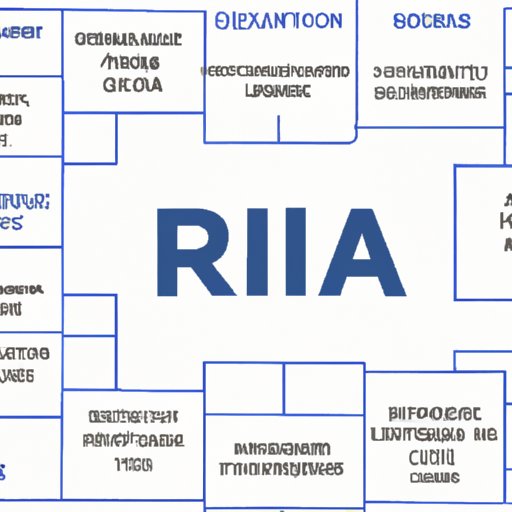Introduction
An RIA (Registered Investment Advisor) firm is a specialized financial services company that provides advice and recommendations for clients’ investments. RIAs are regulated by the Securities Exchange Commission (SEC) and must adhere to certain rules and regulations. Starting an RIA business can be a rewarding endeavor, but it takes careful planning and preparation to ensure success. This guide will explain the steps necessary to create a successful RIA business.
What is an RIA Business?
An RIA business is a company that provides investment advice and manages client assets. RIAs are registered with the SEC and must comply with federal laws and regulations. RIAs advise clients on investing strategies and help them make sound decisions about their money. They also provide financial planning services, such as retirement planning, wealth management, and estate planning.
Benefits of Starting an RIA Business
There are many benefits to starting an RIA business. For starters, you have the potential to earn a high income. An RIA business also allows you to work independently and set your own hours. You can choose to focus on specific areas of investment and specialize in certain types of clients. Additionally, you can gain satisfaction from helping others achieve their financial goals.
Research the Regulatory Requirements to Start an RIA Business
The first step in starting an RIA business is to understand the regulatory requirements. There are several regulations that must be followed in order to become a registered investment advisor. The most important of these regulations is the Investment Advisers Act of 1940. This act outlines the fiduciary duties of RIAs and establishes standards for ethical practices.
Understand SEC Regulations
In addition to the Investment Advisers Act, there are several other SEC regulations that must be adhered to when starting an RIA business. These include the Securities Act of 1933, the Securities Exchange Act of 1934, and the Sarbanes-Oxley Act of 2002. It is important to familiarize yourself with these regulations to ensure compliance.
Obtain Necessary Licenses and Registrations
To become a registered investment advisor, you must obtain the appropriate licenses and registrations. Depending on the type of business you intend to operate, you may need to register with the state or federal government. You may also need to obtain additional licenses and registrations depending on the services you offer.
Become a Fiduciary
In addition to obtaining the necessary licenses and registrations, you must also become a fiduciary. A fiduciary is someone who is legally obligated to act in the best interests of their clients. As a fiduciary, you must uphold the highest standards of integrity and honesty. This includes making sure that any recommendations you make are in the best interests of your clients.

Develop a Business Plan for Your RIA Firm
Once you have a clear understanding of the regulatory requirements, it is time to develop a business plan for your RIA firm. A business plan is an essential tool for any business, as it outlines your goals and objectives, and provides a roadmap for success. When writing your business plan, consider factors such as startup costs, target market, competition, and marketing strategies.
Set Goals and Objectives
The first step in writing a business plan is to set goals and objectives. What do you want to accomplish with your RIA business? What are your long-term and short-term goals? Setting clear goals and objectives will help you stay focused and motivated as you work towards achieving your desired results.
Estimate Startup Costs
When estimating startup costs for your RIA business, consider factors such as licensing fees, legal expenses, technology costs, and office space. Be sure to include all potential costs in your budget to ensure that you have enough money to get your business up and running.
Determine Your Target Market
Once you have estimated your startup costs, it is time to determine your target market. Who are the ideal clients for your RIA business? Are you targeting individual investors, institutional investors, or both? Knowing your target market will help you create effective marketing strategies and determine which services to offer.

Secure Financing for Your RIA Business
Once you have developed a business plan and determined your target market, it is time to secure financing for your RIA business. To do this, examine available funding sources such as banks, venture capitalists, and angel investors. Consider applying for loans or grants if necessary. Make sure to research all of your options before making a decision.
Establish Your RIA Business’ Legal Structure
Now that you have secured financing for your RIA business, it is time to establish a legal structure. You will need to choose a form of ownership such as sole proprietorship, partnership, or corporation. Each form of ownership has its own advantages and disadvantages, so be sure to research each option carefully. Additionally, consider the tax implications of each form of ownership.

Choose a Custodian for Your RIA Business
A custodian is a third-party organization that holds and manages client assets. When choosing a custodian for your RIA business, compare the services offered by different providers. Consider factors such as fees and other charges, as well as the reliability and security of the custodian.

Select the Appropriate Software for Your RIA Business
In addition to selecting a custodian, you will also need to select the appropriate software for your RIA business. There are many different software solutions available, so it is important to research your options before making a decision. Consider factors such as cost, features, and ease of use. Analyze your needs and choose the software that best suits your business.
Market Your RIA Business
The final step in starting an RIA business is to create a comprehensive marketing strategy. Develop a strategy that focuses on your target market and utilizes online platforms such as social media and email campaigns. Additionally, attend networking events and connect with potential clients. Make sure to promote your services and build relationships with existing and prospective clients.
Conclusion
Starting an RIA business is a complex process, but it can be a rewarding endeavor. To ensure success, it is important to research the regulatory requirements, develop a business plan, secure financing, choose a custodian and software, and create a comprehensive marketing strategy. By following these steps, you can create a successful RIA business that helps clients reach their financial goals.
(Note: Is this article not meeting your expectations? Do you have knowledge or insights to share? Unlock new opportunities and expand your reach by joining our authors team. Click Registration to join us and share your expertise with our readers.)
